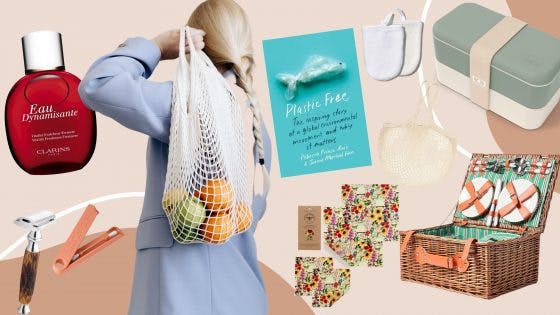10 Easy Ways To Go Plastic-Free
10 minutes read
Going plastic-free all the way seems like just an impossible feat. You can bring your tote bag to the supermarket and still fill it to the brim with plastic products.
However, getting closer to a plastic-free lifestyle is doable. Arming yourself with reusable products is a good start, adamantly saying no to single-use plastic. Both big and small changes can make a difference.
“Choose reusable – bags, water bottles and coffee cups. But, most importantly, remember them!
Many people find that keeping their reusables handy, such as shopping bags by the front door or in the car and water bottles and reusable coffee cups in a bag for work or going out, is a handy way to remember them. As, unfortunately, these items aren’t reusable if left at home,” Rebecca Prince-Ruiz, Founder of Plastic Free July, tells Beauty Daily when asked what is the one step anyone can take to reduce plastic consumption and pollution.
If we don’t take the plastic problem seriously, all of us will suffer. Currently, plastic waste surrounds us; it is found in the air we breathe, in the water we drink, in the fish we eat, and recently found in the human placenta.
“Unfortunately, plastic production continues to increase rapidly, and 91% of all plastic ever made remains in the environment. Beach clean-ups and recycling aren’t going to fix this problem alone – we need to reduce our consumption of plastics and rethink our throw-away habits, and taking part in the challenge is a great way to start,” Prince-Ruiz warns.
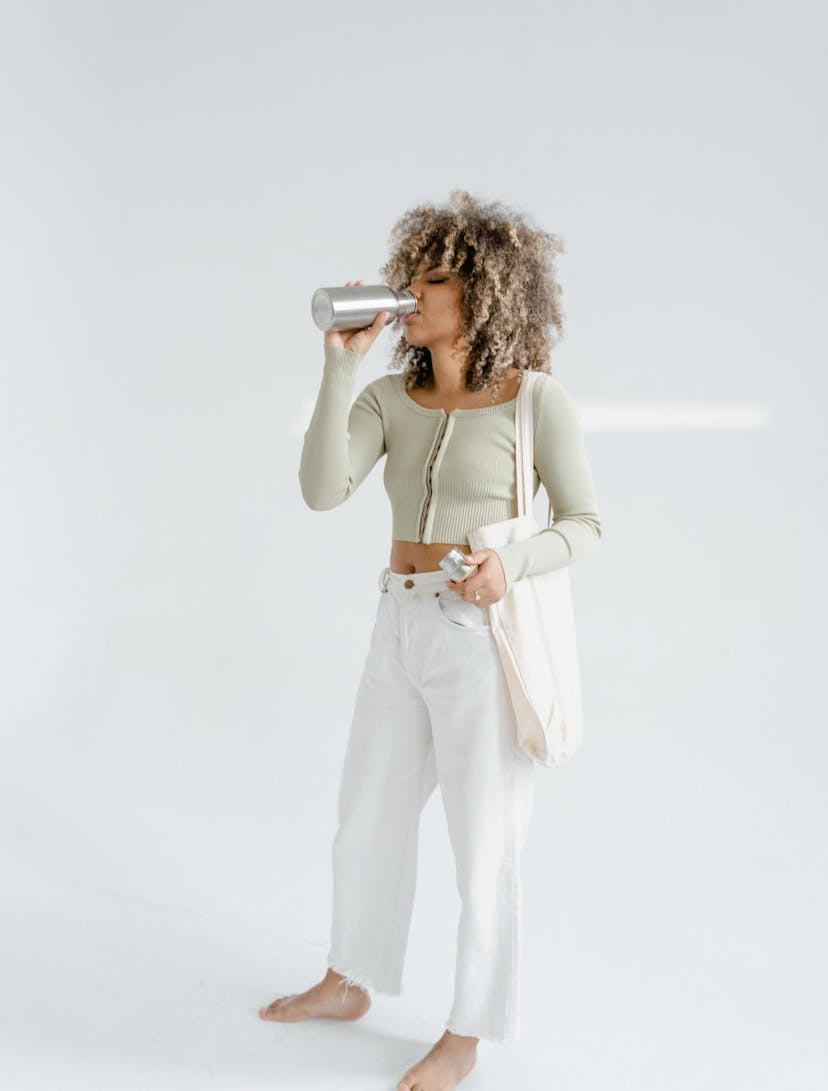
How is reducing plastic consumption good for the environment?
Take a day and observe how we, as a society, inevitably use single-use plastic.
An excellent way to start is with your weekly trip to the supermarket. Go to the fresh produce and pastry section and find fruit, vegetables, and bread wrapped unnecessarily in plastic packaging.
Single-use plastic has an average useful life of 12 to 15 minutes and can take up to 500 years to decompose.
To make things worse, the way plastic products are made requires enormous amounts of energy and uses massive quantities of water, only to be thrown away in a matter of minutes, either in landfills or the ocean.
You might find it overwhelming to stay away from plastic but noticing how prevalent it is in daily life is a good first step.
Some common examples that contain single-use plastic include plastic-wrapped vegetables and fruit in supermarkets, wet wipes, plastic cutlery, coffee cups, straws, sanitary products, aluminium cans, soda and water bottles, tetra pack packaging, tea bags, coffee filters, glitters, cigarette butts, clothes, among others.
Plastic can outlive our children and us, but the good news is that we can do something about it.
How do you completely avoid plastic?
Start small. Prince-Ruiz recommends: “Choose one single-use plastic to avoid, and soon you’ll discover another plastic and another great solution. You can make a real difference by making one small change, and there are so many changes you can try.”
10 ways to reduce plastic pollution
“Everyone – at their schools, businesses, and communities – can help reduce plastic and other pollution by just saying “No thanks!” to single-use and instead, use reusable products [whenever possible]. Become a conscientious consumer and help the world change from a throw-away society to a society that strives to be zero waste,” advises Bill Mott, Executive Director, The Ocean Project.
In light of Plastic Free July, Beauty Daily lists ten simple steps covering how to go plastic-free daily and turn your single-use into multi-use.
1. Plastic-free picnic
It’s picnic season in the UK, and there’s nothing better than meeting with friends and family for a picnic in this sunny weather. So take this opportunity to start practising plastic-free habits with a plastic-free picnic.
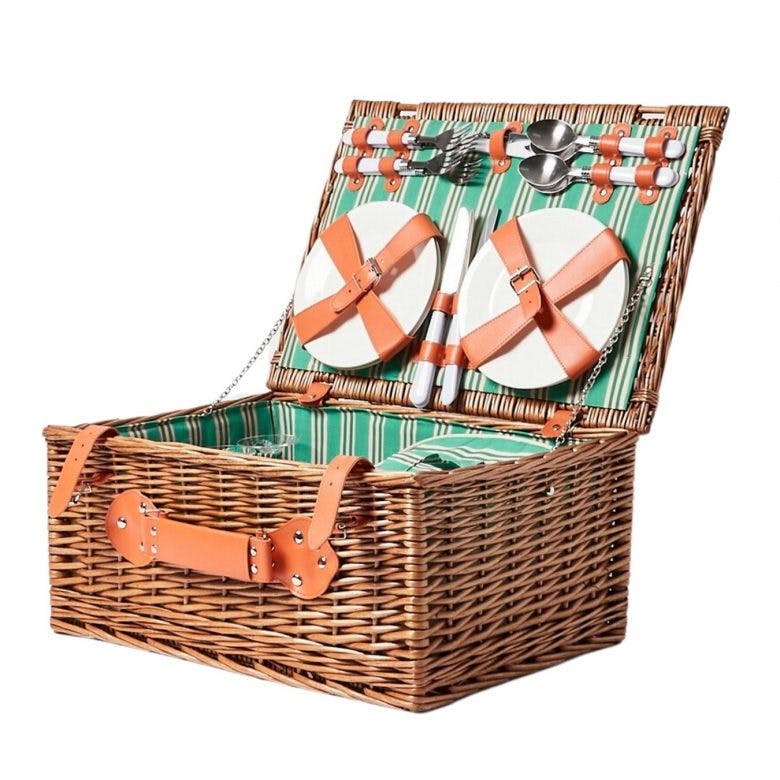
Of course, we want to look ultra-chic, so why not get yourself this Oliver Bonas Four Person Natural Wicker Picnic Basket.
It contains four sets of reusable plate settings, including china plates, stainless steel cutlery and wine goblets and a stylish hamper complete with an insulated base, ensuring your drinks keep cool and your food stays fresh.
2. Ordering takeaway? Bring your own reusable containers
Like reusable coffee cups, many food establishments are happy to serve food in reusable containers. The only issue will be Food Safety. No restaurants or cafes would want to be accused of food poisoning. So, by making sure you wash the food containers properly by yourself and it is not against health regulations, you’ll be fine.
It also pays off to know ahead of time where you’ll be ordering takeaway, as it’s easier to bring the suitable container (size and type). Be polite, ask ahead, and you’ll be able to build confidence over time.
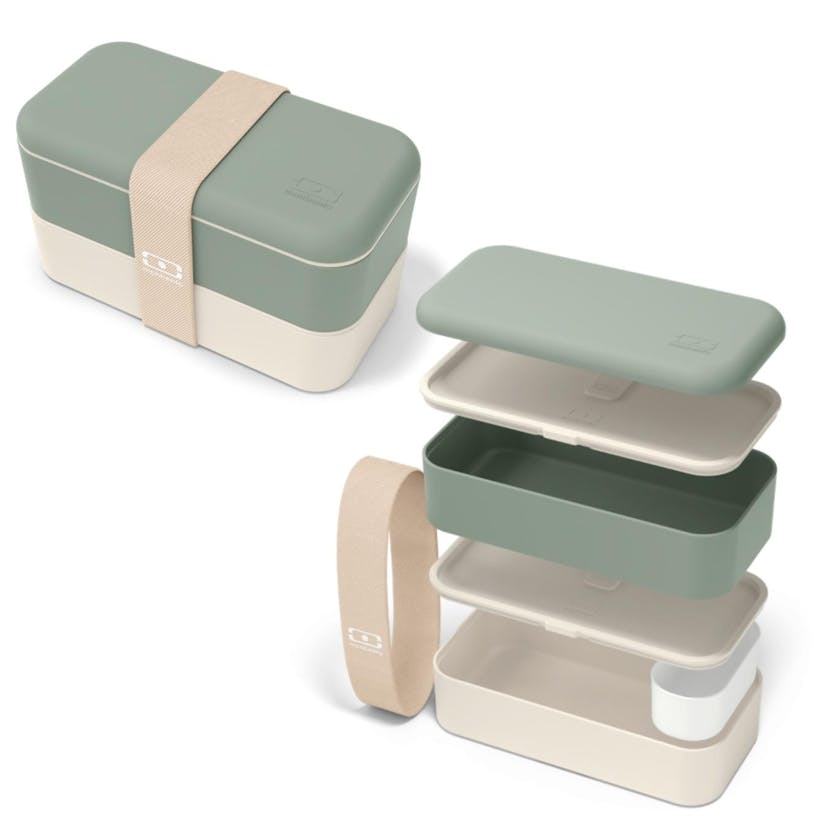
We love this Bento Box from Mobento. The soft cream colour topped with a pretty green is both subtle and fresh looking. It has two compartments to keep food intact, two containers to carry a complete meal, and is microwave and dishwasher safe.
3. Read a plastic-free book to help you lead a greener life
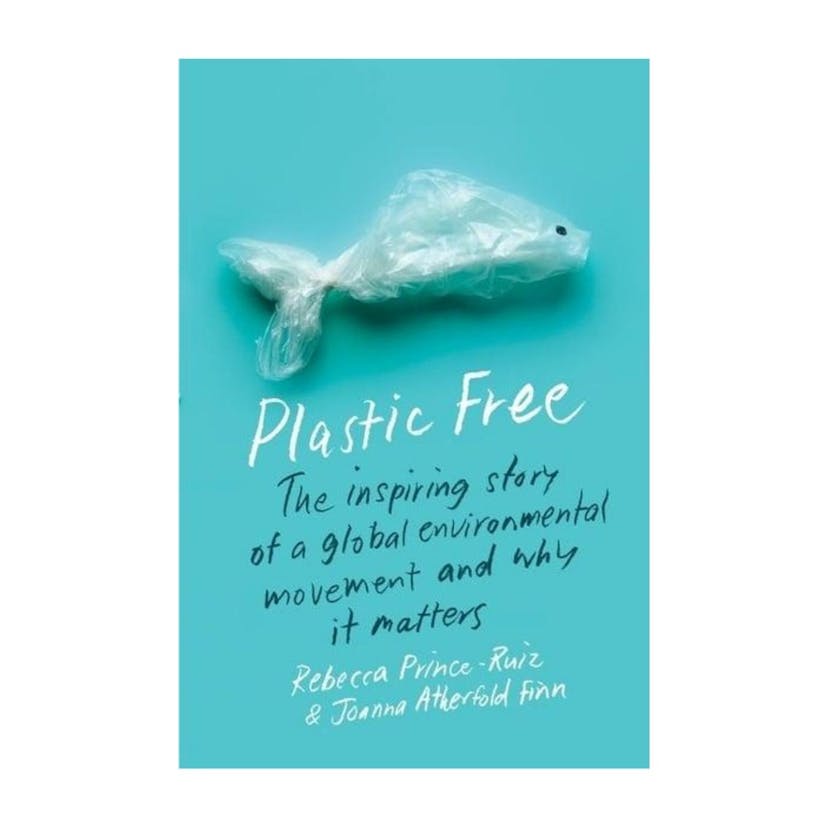
For those still questioning their plastic use, Plastic-Free: The Inspiring Story of a Global Environmental Movement and Why It Matters is a good place to start. Co-authored by Plastic Free July Founder Rebecca Prince-Ruiz, the book provides plenty of information about why we need to limit single-use plastic without coming across as radical or preachy. Best of all, the suggestions to reduce plastic consumption are doable by all of us.
4. Dump plastic cling wrap or aluminium foil; try wax wraps instead
Something as simple as opting for wax wraps instead of plastic cling ones or aluminium foil can be your first zero waste swap. It’s a fantastic way to wrap sandwiches and snacks for lunches, picnics or covering food in the fridge.
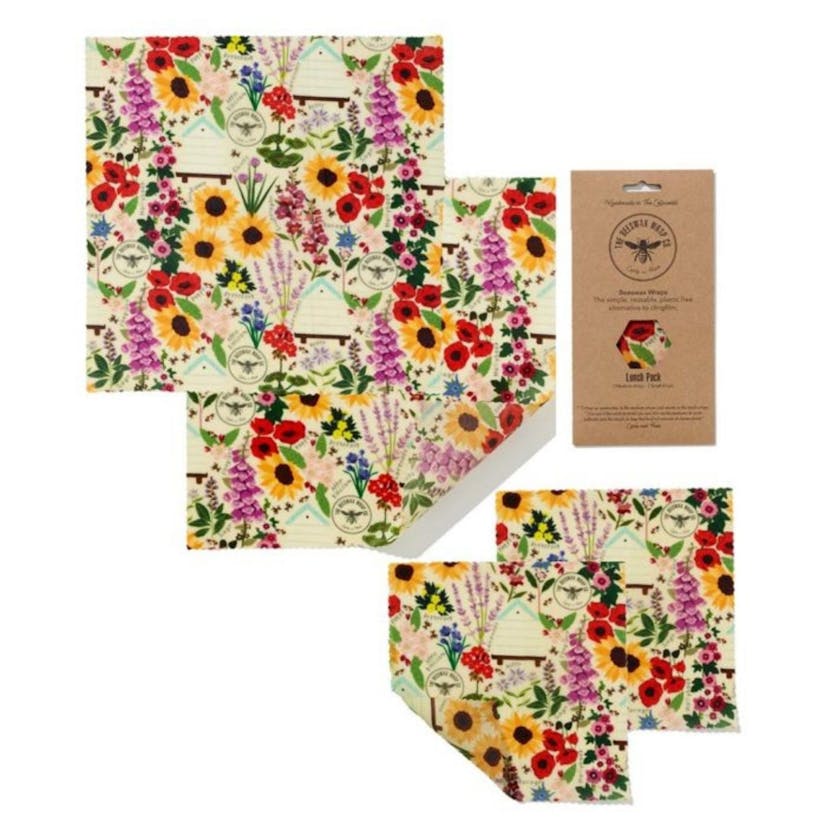
Beauty Daily loves this Floral Print Beeswax Wraps. Unlike inferior beeswax food wraps, these organic reusable food wraps can easily be wiped clean with a damp cloth and cold water and last up to a year. In addition, beeswax paper is made from biodegradable ingredients that break down in landfills.
5. Switch tea bags to loose leaf tea
Teatime is so embedded in British culture that, not surprisingly, UK consumers get through millions of teabags every day to make their favourite drink. Yet, the vast majority are not fully biodegradable. So, switching from tea bags to loose leaf tea is a popular choice for many people trying to reduce their packaging and avoid the plastic found in many tea bags.
In case you were unaware, many of the tea bags we buy contain polypropylene, which is what the tea bags are sealed with. Many brands make tea bags without tiny plastic, but if your favourite brand doesn’t offer it, maybe it’s time to switch to loose leaf tea.
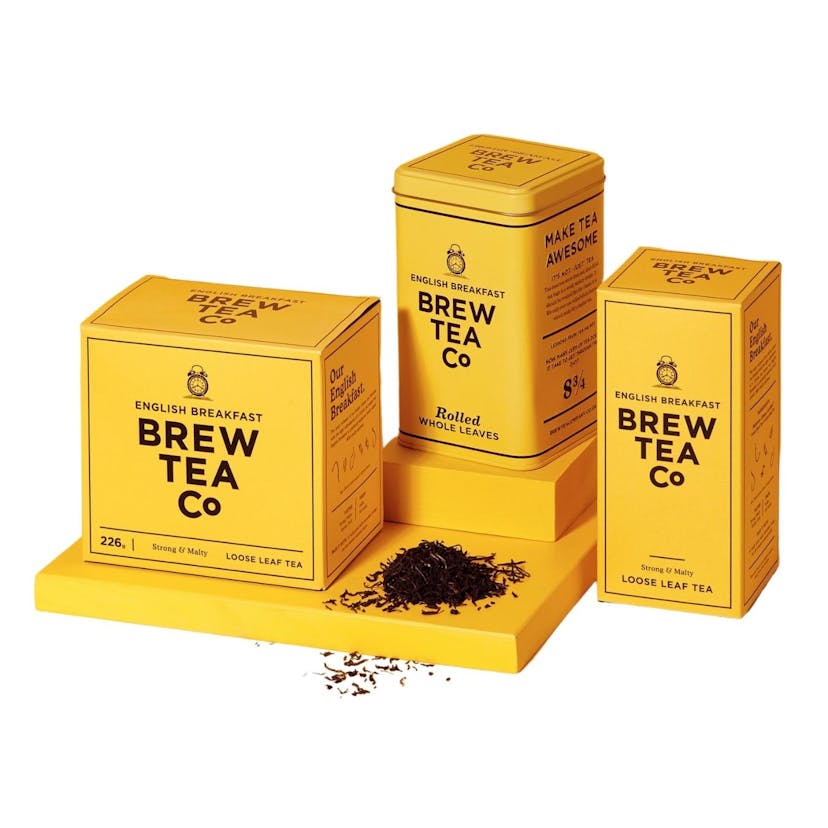
Brew Tea Company’s iconic brewing kit is entirely plastic-free. Whether you’re up for a strong and milky morning cup, or a punchy iced tea, brewing with rolled whole leaves gives you a smoother, deeper, richer taste. Start with a classic and try their English Breakfast by Brew Tea.
6. Opt for a sustainable refillable spray
Recycling usually is not an option for perfume bottles as they should be cleaned. That being said, crystal and glass bottles are destined for landfills. But not all fragrances and their packaging are made equal. For instance, Clarins Eau Dynamisante not only comes in a refillable spray, the fragrance bottle and its cover come apart to facilitate waste sorting.
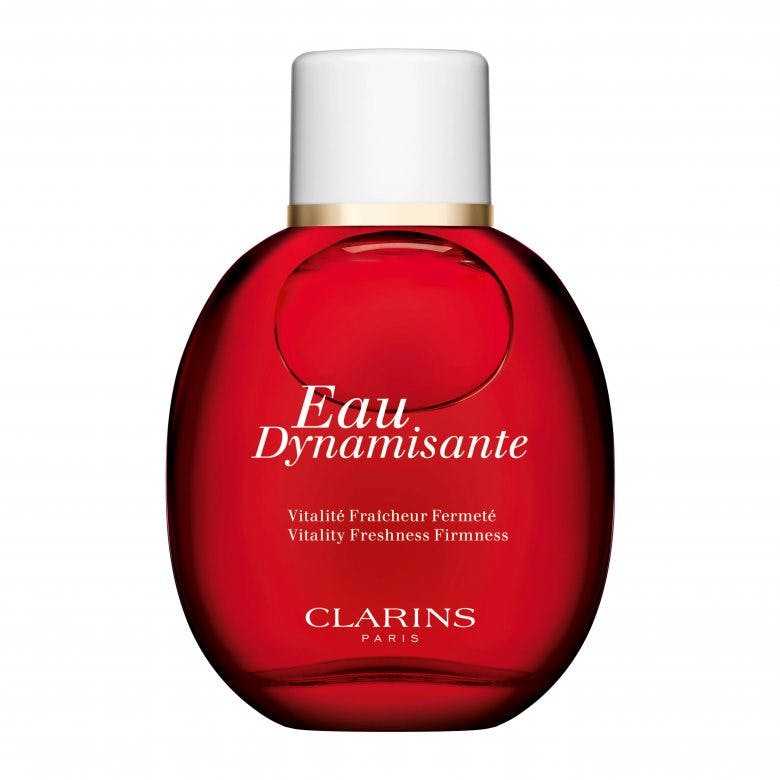
So, if you are looking for a more sustainable and versatile scent, this one is a great option as it’s made with 100% essential oils of invigorating and uplifting notes of lemon, patchouli, petitgrain, ginseng and white tea.
Once you get into the habit, you’ll also be rewarded as you can easily refill the 100 ml bottle (priced at £36) with the contents of either a 200 ml (£56) or 500 ml (£73) for a lower price.
7. Say no to disposable plastic ‘pink or blue’ razors; try a bamboo instead
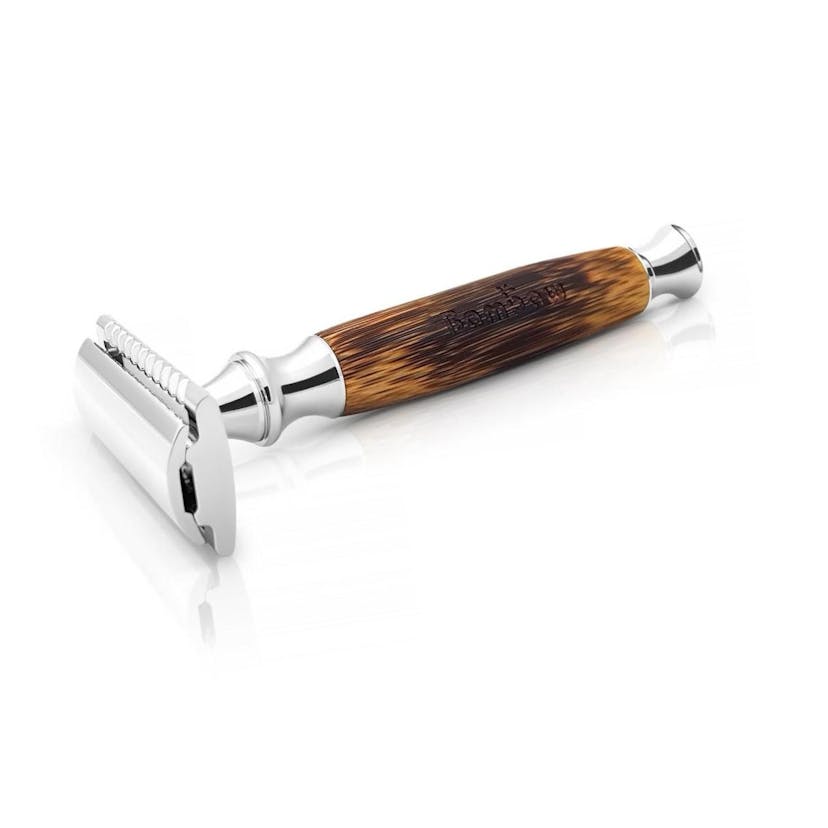
You might also want to reconsider your disposable razors as environmentalists warn that they are problematic on many levels. Instead, try alternatives like this Bambaw Eco Razor by The Plastic Free Shop UK. Not only is it aesthetically pretty, but it’s also made with 100% natural, sustainably grown bamboo handles, and is complemented by a stainless-steel safety guard and trimmings. If cared for correctly, your new razor can serve you for decades. No worries about replacing; it fits all double-edge razor blades and comes with one free blade to get you started.
8. Ditch single-use cotton swabs, opt for a reusable Q-Tip
With other beauty swaps, you can switch to reusable make-up remover gloves, sanitary pads, and the often-forgotten cotton swabs. Unfortunately, the plastic stem takes about 500 years to break down.
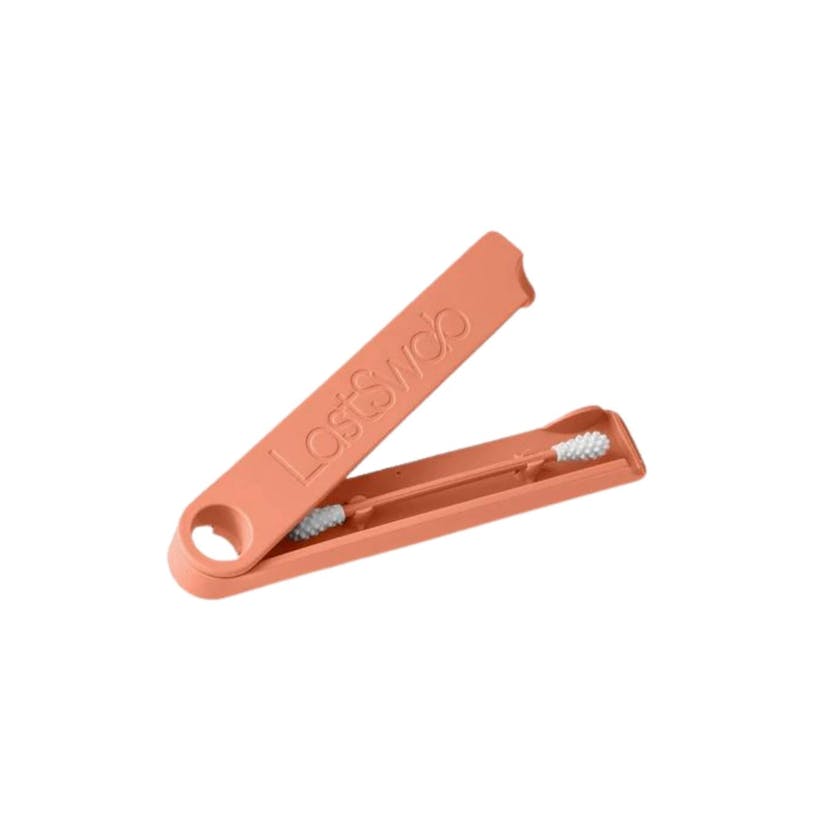
A perfect solution is switching to something like the LastSwab, which can be cleaned by hand using soap and water after use. In addition, you can reuse it up to 1,000 times. It also comes with a quality case that is made of recycled ocean-bound plastic. That makes it easy to store in your bathroom or bring on travels.
9. Always carry your reusable shopping bag (whether you use it or not)
Let’s not take the reusable bag for granted. A day of forgetting it and being lured to buy a plastic bag can cause the planet so much more, so always bring a lightweight, reusable bag with you.
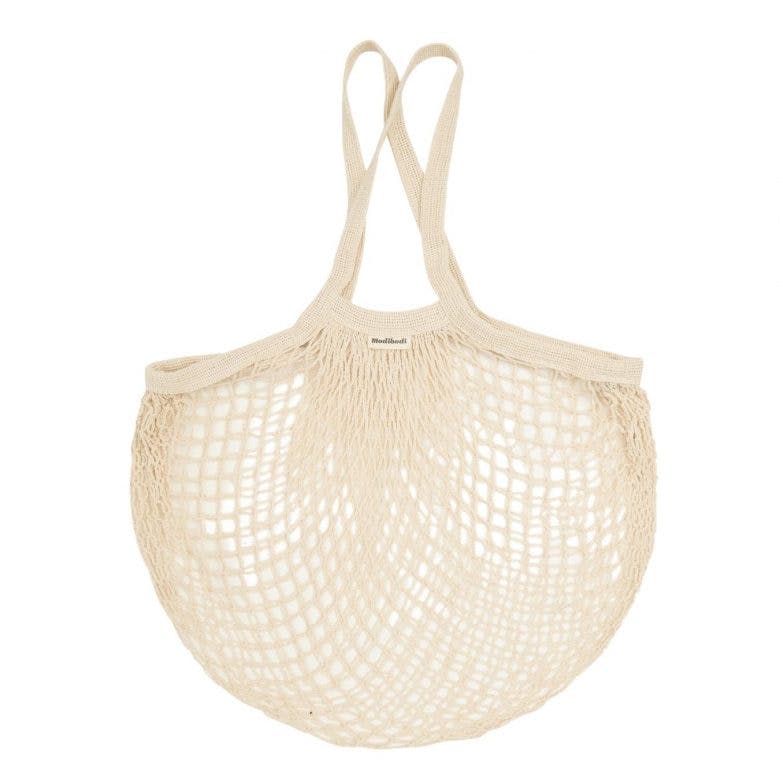
This Modibodi Reusable Shopper Bag is made sustainably with organic cotton making it soft and easy to squish in your bag and carry everywhere you go. In addition, it has a stretchy string design which shrinks – or grows – to suit your needs.
10. Change your attitude towards shopping
Everyone deserves some retail therapy. But while at it, make sure you choose well and make it last. In this day and age where throw-away culture is a thing, and a bulk of garments is ending up in landfills, it is worth looking back at our wardrobes to check if we really need a new piece of clothing.

Try to maximise the use of the items in your existing wardrobe as much as possible, or opt for sustainable fashion brands like Billi London, Asket, E.L.V Denim, and Reformation. Or initiatives that fix older or work items like Restory.
Put Plastic-Free July in Your Calendar
“Last year, an estimated 140 million participants avoided 300 million kgs of plastic waste, building a global movement that is making a difference and creating pressure for systems change by business and government,” says Prince-Ruiz.
Everyone can participate in the Plastic Free July challenge and join millions of others worldwide, making a difference by signing up at plasticfreejuly.org. The theme of Plastic Free July this year is ‘Turn the Tide, one choice at a time’ and celebrates the collective impact of millions worldwide choosing to refuse plastics.
Prince-Ruiz shares: “Some people start by targeting takeaway items (plastic bags, bottles, straws, and cups); others start by looking at the plastic in their lives (in their fridge or pantry or even their bin) and choosing one item to find a switch for whilst others focus on a particular item such as avoiding fresh produce packaged in plastic.”
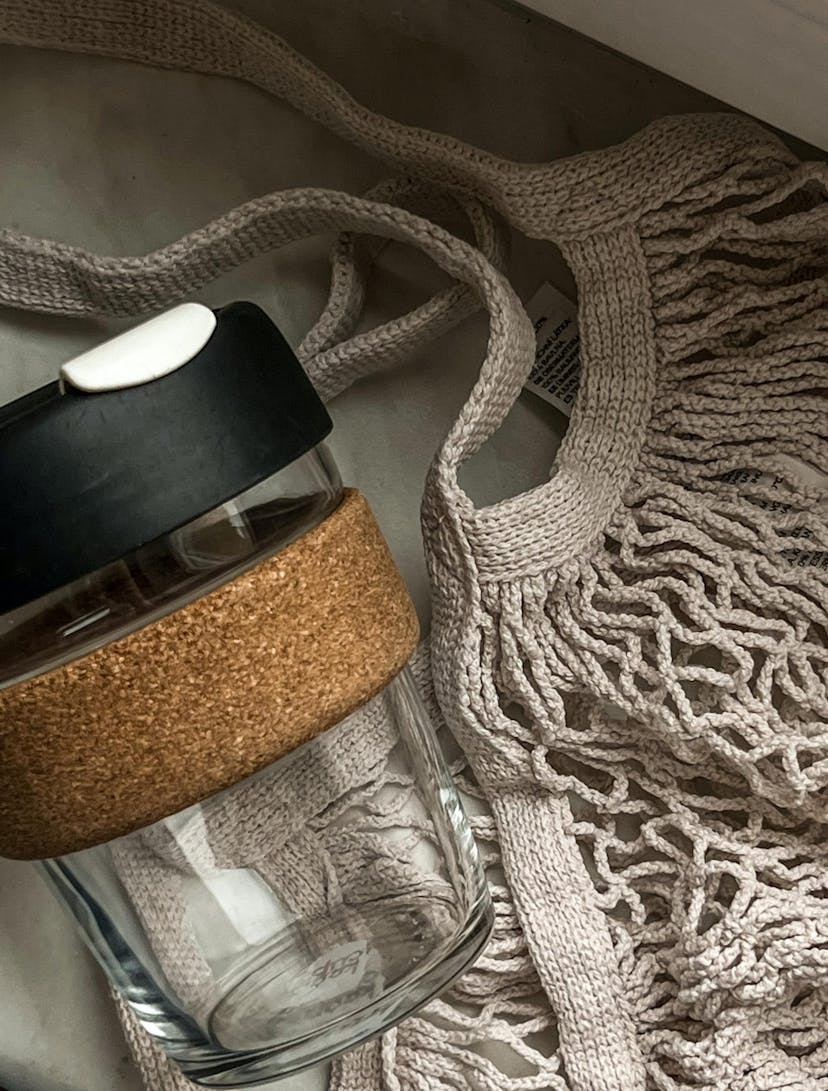
Here’s how you can make an impact this Plastic-Free July
Environmentalist Mott shares three practical ways:
“For long-term change, urge your favourite company to move away from single-use plastics and other materials.”
Clarins is one of the pioneering brands to have banned the use of plastic bags from stores since 1999. Clarins is also the first partner of Plastic Odyssey, the first expedition to fight plastic pollution that delivers solutions to the worst polluting countries so they can turn plastic into a resource. To this day, Clarins is working with Plastic Odyssey, and the brand has pledged that by 2025, all packaging will be made from 100% recyclable or recycled containers.
“Ask your government leaders to pass policies that promote reuse and reduce single-use packaging.”
The UK government has already taken steps to combat plastic waste by banning microbeads in rinse-off personal care products, 5p charge on single-use carrier bags, and banning the supply of plastic straws, stirrers and cotton buds – all of which are part of the UK Government’s commitment to prevent all avoidable plastic waste and part of the Green Future 25 Year Environment Plan. However, more needs to be done.
Live by example and influence others to do the same.
“More than just raising awareness, people can learn about the environmental, economic, and business cases for switching from single-use to reuse. There are many solution-focused ways forward for solving the plastics and climate problems, so join with others in your community and get involved in making a real difference.”
Looking for more ways to live sustainably? Read Beauty Daily Staffers Share Their Sustainable Beauty Swaps or 10 ways you can do to reduce your H20 footprint
Sign up for our newsletter
We will keep you in the loop for special offers, exclusive gifts and product news.

